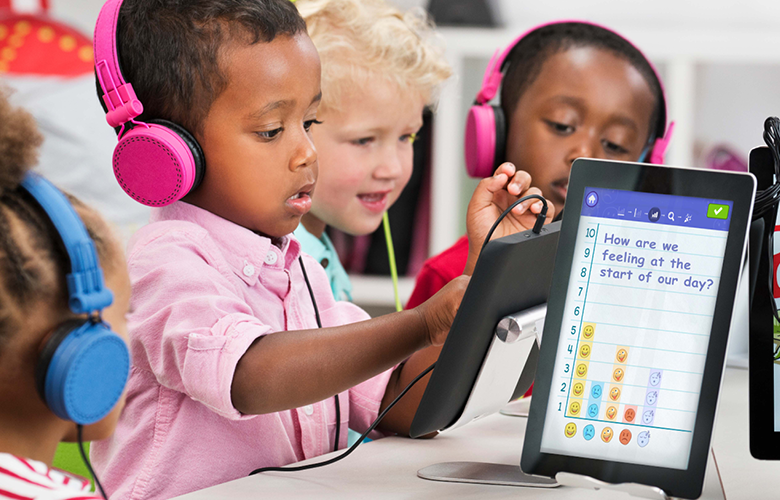
At EDC, we believe that mathematics and computational thinking (CT) instruction should start early in a child’s school experience—as early as preschool in fact. Early mathematics learning is predictive of later learning across academic areas, and CT similarly develops flexible problem-solving strategies and persistence across STEM and literacy. With a lack of high-quality preschool materials in these areas, our Preschool Data Collection and Analysis (DCA) project fills this void.
The DCA project has designed and piloted a set of curricular activities (or “investigations”) that infuse CT into everyday preschool activities. A key component of these investigations is a tablet-based app that enables preschool teachers and students to collaborate in collecting data, creating simple graphs, and using the graphs to answer real-world questions.
The app includes nine play-based investigations. Six of these engage preschoolers in fun activities that build skills related to counting, sorting, classifying, comparing, and ordering. App topics for investigations include children’s favorite books, features of their clothing, characteristics of animals, and explorations of their classrooms and outdoor spaces. Teachers are also able to create their own investigations based on themes or activities within their curriculum. For example, teachers have created graphs from children’s responses to questions of the day (e.g., what do you want to do at choice time?), and then used these graphs to inform decisions (e.g., setting up corresponding choice time activities).
The final investigation is called a “data story” and allows the class to generate research questions relating to a central theme and then collect data to tell a story about that theme. For example, the children might be interested in weather and ask questions about the most common weather this month, about changes in weather across seasons, or about what activities they can do in various types of weather. Using the app, the class then creates several graphs or charts with text describing the process and findings. The result is a short book that children can return to and “read” to review and share what they learned.
To refine the design of the app and its investigations, we conducted several pilot tests with preschool teachers and their students. We were excited to see that integrating CT into early math instruction created powerful learning experiences for both teachers and students. The app allowed children to compare data, make observations, and interpret findings. And teachers appreciated its versatility and are looking forward to using it across curricular areas.
For more information on exploring data in your own early childhood classroom, check out similar resources here!
| Deborah Rosenfeld is a senior research associate at the Center for Children and Technology at EDC, where she designs and studies digital and hands-on materials to support early learning, especially in the areas of STEM. |

Add new comment